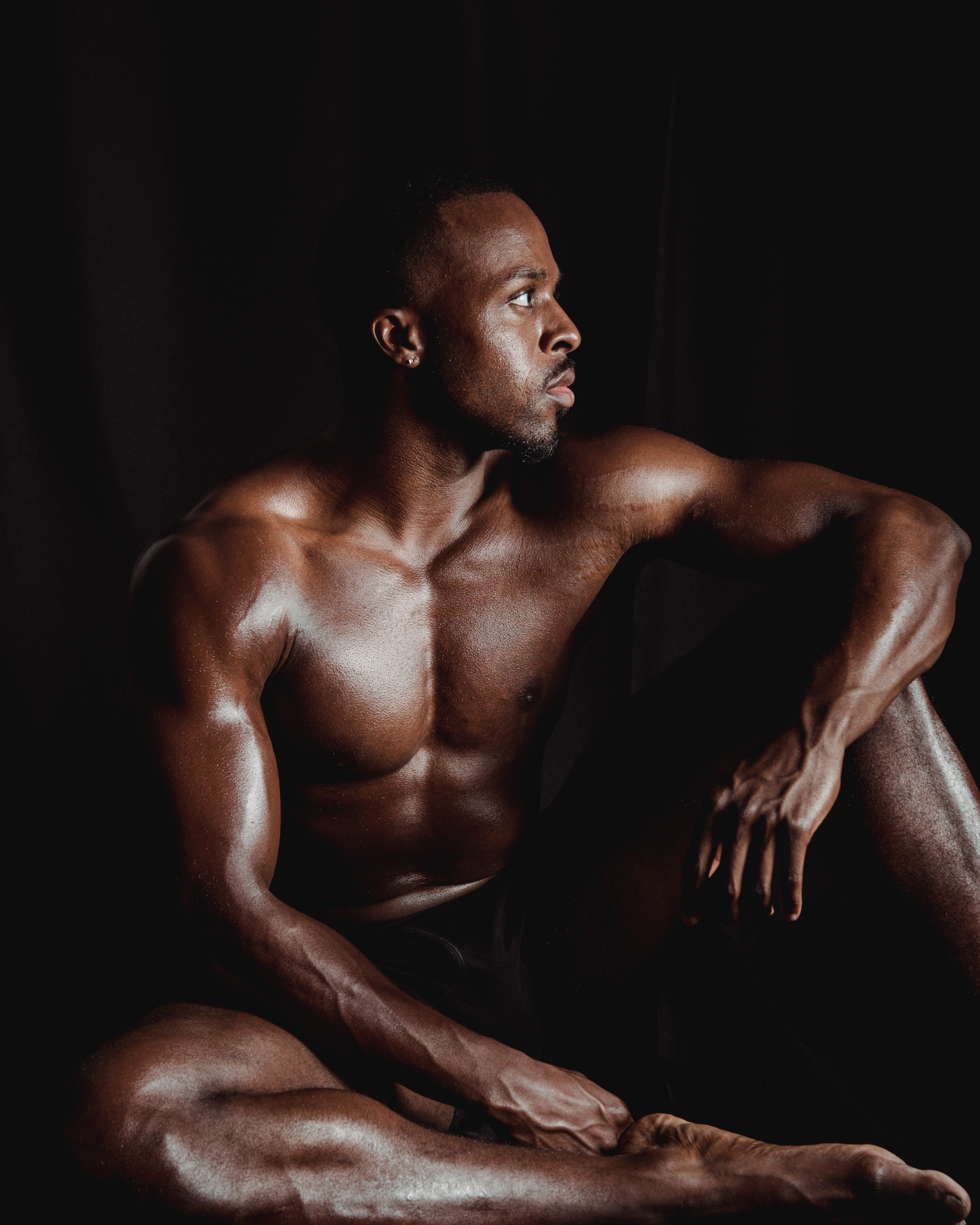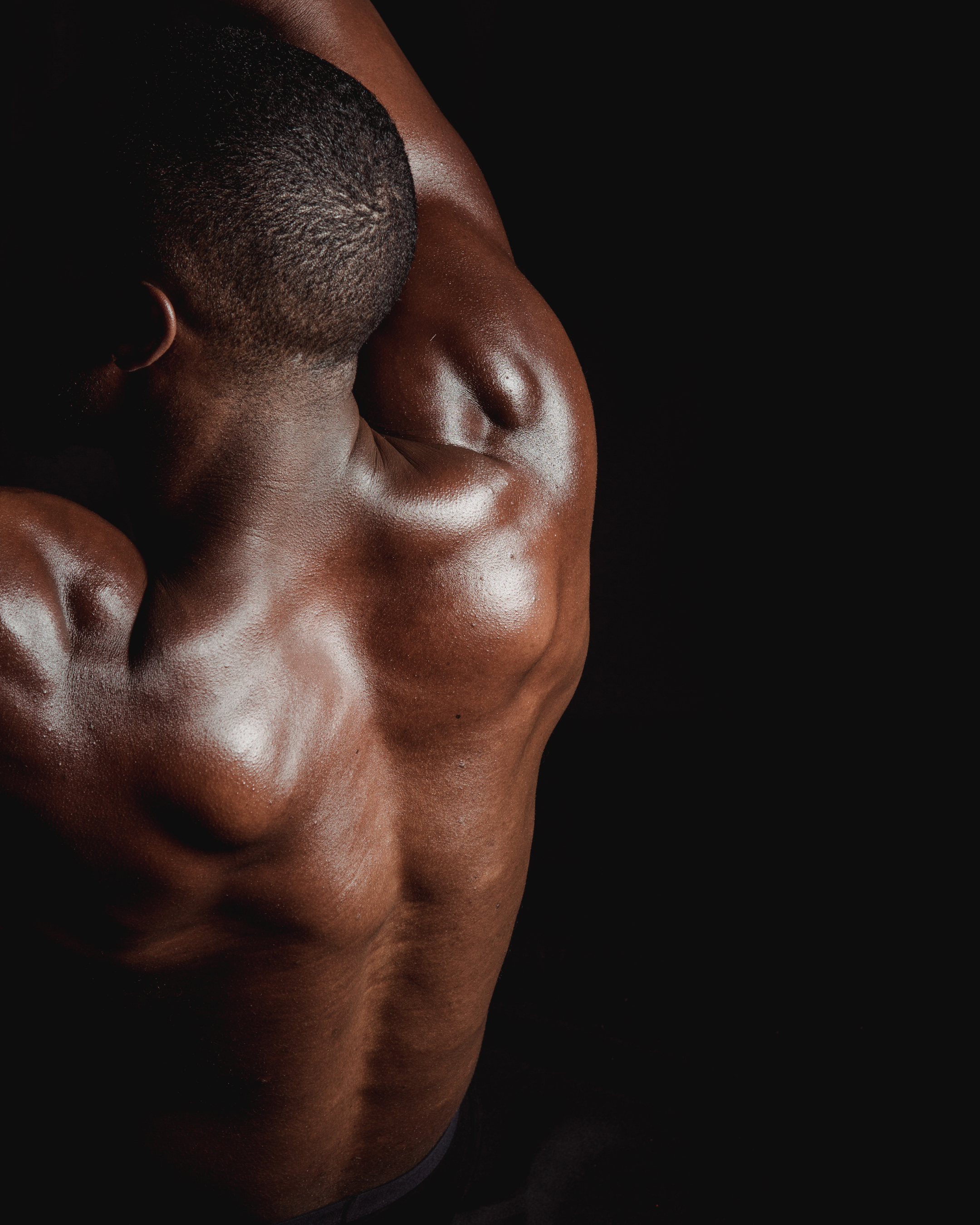001: Pressure is a Privilege
EDITION: September 2025
ESTIMATED READING TIME: 8 minutes
TL; DR: Short on time? Here’s the 90 second breakdown.
FIELD NOTE: 001
Sometimes someone says something so honest it rearranges the air. That happened a few weeks ago.
His name is Jimmy*. Former pastor of a megachurch, a husband, father, entrepreneur. Fifty-four years old and still leading from the front.
We were face to face over Zoom during a Future Intelligence intro session—the 101 every member takes before entering their personalized curriculum.
He was calm. Grounded. Jaw tight. No emotional fanfare. Just holding a lot, quietly. I could see it in the way he looked at me. His eyes asked before his mouth did: Can you actually hold what I’m carrying?
But what he said instead was simpler, heavier.
“I have to hold it all, right?”
It wasn't a question, it was a statement. Said the way someone asks about the terms of their life contract. Like this was the price of existence.
He wasn’t posturing for pity. He was naming what it means to stay in the fight—for his family, his marriage, his wife’s illness, his calling. Carrying what no one else would. Holding it down because, if he stopped, who’s left?
He spoke about being “the one”—the one who takes care of everyone, the one people lean on, the one who holds literally thousands of people a week. And underneath his measured voice, something flickered: grief, maybe.
Then, without theatrics, he said, “There’s Jimmy. And then there’s Jimmy-Plus. Jimmy-Plus is who everybody sees. The one on stage. The one who performs. Everyone loves him, but I don’t really like him all that much.”
To slip past the mind’s armor and touch what lived beneath, we dropped into a Voice & Vision exercise—something simple, meant to quiet the noise and make space for what’s real underneath performance. When he came back up, his voice was steady, but something had softened.
“The scary part,” he shared, “is that I’ve built everything on being strong. But what if strength was just my way of surviving? I built Jimmy-Plus to survive, but now I’m not sure I want to keep living like that. I’ve got this little boy inside me. I didn’t even know he was still in there.”
Silence.
And then came what Lakota Elder John Fire Lame Deer calls woniya wakan, holy air.
Spirit, life, breath, renewal.
The marrow that binds when we sit together and something more than us is there, between us.
These are my favorite moments.
When revelation comes and the nervous system remembers it is allowed to breathe.

THE WORLD
Lately, I’ve been thinking about what it takes to stay in the fight. To stay present in the mess of leadership, grief, love, disappointment and not opt out. To stay awake to your own longing without burning your life down.
Because staying is not easy. Staying requires an unglamorous kind of courage. One that doesn’t get celebrated in headlines or social posts. It’s the kind of bravery that looks like quietly showing up again. And again. And again.
That’s what made that moment with Jimmy so powerful. He wasn’t trying to escape. He was trying to stay—and to stay with integrity.
But not everyone stays.
Some try to outrun the mess entirely.
Raoul Pal, former Goldman Sachs executive and now CEO of Real Vision, continually warns: “In five years, everything changes.”
When Raoul says it, he does not mean a small adjustment. He means tectonic plates shifting beneath our feet: macro conditions shifting so fast that the structures we’ve relied on—markets, currencies, even governments—can’t hold in the same way.
He’s talking about debt crises, global instability, and the speed at which technological acceleration might outpace our capacity to govern it.
His advice? Get as much money as you can. Buy land. If you can, buy an island.
And he’s not the only one preparing.
Across Wall Street and Silicon Valley, executives buy fortified shelters in New Zealand and Montana, outfitted with gyms, wine cellars, even simulated sunlight. Sam Altman, the CEO of OpenAI, has admitted to stockpiling survival supplies and securing an underground refuge, not for AI, but for the possibility of geopolitical collapse.
This is the architecture of a particular fear. When you don’t trust the world, there’s no space for holy air. You don’t prepare for communion.
You prepare for isolation.
And I don’t blame them. In some ways, it makes sense.
But if we step back, there’s something deeper at play here.
Beneath both the instinct to flee and the compulsion to stay lies something more primal: our nervous systems, maxed out. Not just stressed, but shaped by stress.
The very conditions that make someone “high-performing”—constant vigilance, rapid decision-making, carrying others—sculpt a body wired for survival, not flourishing.
And we feel it.
Why do we speak so fast? Why do we shallow-breathe? Why do we grind our teeth? Why does it feel like an anvil sits on our chest? These aren’t quirks of personality. They are signatures of a nervous system locked in defense, calibrated for danger. In that state, everything feels like bracing—every conversation, every deadline, every responsibility.
The irony is brutal: while living in that braced state, we are also busy building the future. But how can we truly innovate if our bodies are still preparing for impact? How can we imagine new systems while our own internal system is convinced collapse is imminent?
This is how you get the paradox: leaders designing what’s next while secretly terrified of it. Rehearsing exit plans while projecting invincibility.
We can be visionary high-capacity humans and still be caught in this trap—rewarded for endurance, but given no map for restoration. Over time, this fragments us: protector, performer, exile, ghost.
That’s why Future Intelligence doesn’t start with strategy. It starts with sensation. With breath. With movement. With the nervous system remembering it doesn’t have to fight just to exist.
From there, wise insight can emerge when its signal is no longer dulled by fear, exhaustion, or adrenaline. That’s the third path. Not martyrdom. Not withdrawal. But deep, intelligent presence—the kind that can hold complexity without collapse.
PERSONAL
Most of the people who apply to Future Intelligence come to us in moments they wouldn’t post about. Not because they’re ashamed—but because these are the hours before clarity. The moments before a decision. The season between who they’ve been and who they’re becoming.
These thresholds aren’t tidy. But they’re sacred. And they’re filled with intelligence, if we know how to listen.
I think about the leaders I most admire. Not the flashiest or the fastest, but those who know what it means to be shaped in the trenches of struggle. Nelson Mandela comes to mind—not because of the mythology around him, but because of the years no one talks about. Twenty-seven years in prison. Twenty-seven years being forgotten, mischaracterized, stripped of dignity. And yet he emerged with a psyche large enough to hold a nation.
That’s what Rilke meant when he told us, “Let us not squander the hour of our pain.”
Because what are we, really? Just bone? Flesh? Logic? Base instinct?
Or is there something else—some precious tap that knocks us into our humanity, some pearl of light that flickers awake when we stop performing and really see?
See ourselves.
See each other.
See the way forward.
Marcus Aurelius wrote, “The impediment to action advances action. What stands in the way becomes the way.” And while his words are often quoted in business circles as a kind of motivational grit, I think they’re more tender than that.
I think he was pointing to a wiser third path. The one that doesn’t demand collapse. The one that doesn’t require escape. The one that says: this—this pain, this pause, this moment—is not in the way. It is the way.
Pressure, as Billie Jean King said, is a privilege.
And what a gift—to carry light in a chaotic world.
But even light-bearers need tending. We wouldn’t run marathons without training. So why do we think we can build nations, teams, families, companies—futures—without tending to the psyche that carries it all?
This is the work.
This is the invitation.
This is the way.
*This piece was shared with permission from Pastor Jimmy, whose honesty and heart is a testament to his leadership.
MELISSA KIGUWA Future Intelligence Founder
Creator of the Future Intelligence™ curriculum—a 12-part inner training used by top decision-makers—Melissa pairs nervous-system retraining with interfaith spiritual practice. Training as a Spiritual Director with Unity Worldwide Ministries and holding a master’s from the London School of Economics, she helps public leaders unwind chronic tension and return to calm, decisive leadership.

